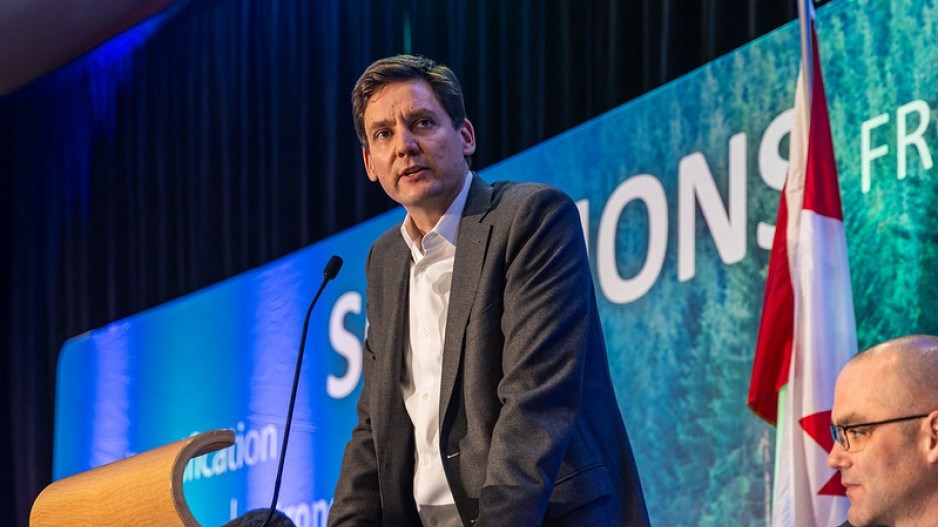To truly make Premier David Eby’s new housing flipping tax relevant in British Columbia you’ll need three critical ingredients that were missing from the government’s unofficial launch this week: A DeLorean, a flux capacitor and enough roadway to hit 88 mph.
Only then, as you hurtle backwards in time à la Back to the Future, can you match the anti-flipping tax to a point when it would have made a notable difference — say, a decade ago, or after the pandemic in 2022.
Instead, the introduction of the new legislation this spring will be largely anticlimactic: A tax on flipping properties when most properties aren’t being flipped.
“I think this tax is probably a little too late,” said Kaeley Wiseman, owner of Wiser Projects, a Victoria-based development and community planning company.
‘We're seeing a lot of projects not moving, single-family products not moving because of prices and the market slowing.
“I think had this come out a year or two ago, there would have been a more substantive impact.”
Wiseman is one of a number of developers, academics and real estate analysts who think the flipping tax will have little actual impact on housing prices, rents or the availability of properties to purchase in the market.
The muted expectations are backed up by the B.C. government’s own internal estimates. The province expects only 3,000 to 4,000 housing sales to be hit by the tax annually, out of a market where regular activity hovers around 100,000 sales a year.
New Democrats say any money generated on the tax — which starts at 20 per cent of profits on a resale within a year of purchase and slides down to zero by the end of year two — will go towards funding new affordable housing projects.
But the projected annual revenue is $43 million a year — an infinitesimal slice of the multibillion-dollar real estate sector, or even the $2 billion brought in annually by the property transfer tax.
“One of the other reasons I think that this is actually going to have less impact is because a lot of folks that have single-family dwellings are now sitting in waiting on their sites considering a different move than just a regular market sale,” said Wiseman.
“So they're considering small redevelopment through the [single-family multiplex] legislation. So I think that's why they're anticipating $40-plus-million a year in revenue. And that’s probably over-projected.”
Eby’s legislation to permit quad-plexes on single-family lots, without municipal rezoning, could in fact lead to developers buying up properties, conducting quick renovations, and flipping to resell. But they are actually exempt from the flipping tax.
That’s by design, because the province wants to encourage anyone who is willing to take a single-family home and turn it into multiple housing units. Even people who buy a property and put in a secondary suite will get an exemption from the tax, and the ability to resell without penalty within that two-year window.
“We want to encourage this activity,” said Eby.
“If we had in place the flipping tax that didn't consider whether or not you were buying a place and turning it into a duplex or a triplex, then it would reduce the opportunities for people to get into these neighbourhoods. It would reduce the first-time home buyer opportunities for families, it would reduce the opportunities for seniors to split their place into multiple units. So we’ve made that exemption.”
Despite the potential lack of impact, the flipping tax will have two positive outcomes for New Democrats once it lands.
The first will be as a deterrent for when, inevitably, interest rates fall and the housing market picks up again. Perhaps the idea of a modest surcharge on profits will be enough to deter some people from buying and selling housing like it’s the stock market. Though, quantifying that impact in order to brag about it will be difficult for the government.
The second will be as a political weapon in October’s provincial election.
New Democrat strategists will distort and sharpen this tax into a political spear to be thrown at enemies during the campaign, wrapped up in overblown language about tackling evil speculators and fighting on your side to ensure homes are for people — even if the tax mostly does nothing, for now.
In that, the flipping tax is reminiscent of B.C.’s foreign-buyers and speculation taxes, both of which allowed governments to go after the popular villains of real estate, despite the measures having little actual impact on the core problem of supply and demand.
“Families shouldn’t have to compete with house-flipping investors when they’re trying to buy a home,” said Eby. “This tax will deter speculators and give families looking for a place to live an advantage in our housing market.”
Expect to hear that phrasing again and again in coming months. Even if, really, the time when a flipping tax was desperately needed in B.C. has already come and gone.
Rob Shaw has spent more than 16 years covering B.C. politics, now reporting for CHEK News and writing for Glacier Media. He is the co-author of the national bestselling book A Matter of Confidence, host of the weekly podcast Political Capital, and a regular guest on CBC Radio.





